Iran’s Chamber Of Commerce Member Raises Concerns Over Currency Volatility
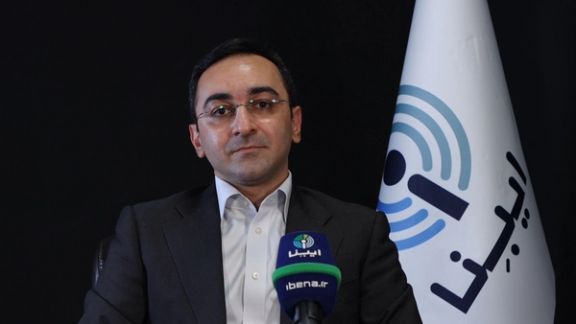
Mehrad Ebad, a member of the Iranian Chamber of Commerce, has voiced concerns over the volatility of Iran's national currency.

Mehrad Ebad, a member of the Iranian Chamber of Commerce, has voiced concerns over the volatility of Iran's national currency.
He stated on Wednesday that, "Nowhere else in the world does the national currency's value drop by 20% overnight."
In the address, he added, “Economic stability is one of the most crucial needs for businesses, enabling their owners to plan based on this stability. Unfortunately, in recent decades, stability has been lacking in the Iranian economy, and domestic and international events with direct and indirect impacts on Iran's economy have influenced the exchange rate.”
The Iranian rial's recent nosedive against the US dollar has exacerbated the concerns. Last week, the rial plummeted to 575,000 against the dollar amidst escalating regional tensions and uncertainties surrounding the US presidential election, particularly regarding the potential re-election of Donald Trump.
Although the rial has regained some of its value in the past few days, reaching 557,000 against the dollar, the overall trend remains worrying. Since 2018, the currency has depreciated 13-fold, triggered by the US withdrawal from the JCPOA nuclear deal and subsequent sanctions on Iran's oil exports and international banking.
With an annual inflation rate exceeding 50 percent, the diminishing value of the rial is expected to exacerbate inflationary pressures in the coming months. The economic instability is compounded by low monthly wages for workers, averaging less than $200, leading to widespread discontent and protests across various sectors, including oil and gas production platforms and refineries.
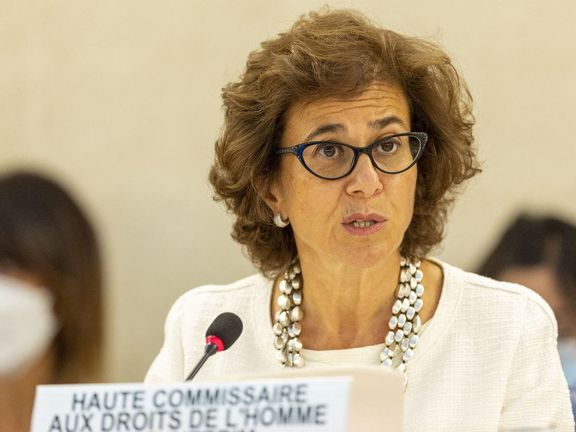
The Deputy UN Commissioner for Human Rights has visited Iran in total media silence after Iranian opposition urged her to cancel or postpone her visit in protest to Iran's recent executions.
Neither the Iranian authorities, nor the UN Human Rights Office have issued statements regarding Nada Al-Nashif’s visit, which took place between 2 to 5 February as scheduled. However, in an email to Voice of America (VOA) on Monday, rights office spokesperson Ravina Shamdasani confirmed that Al-Nashif arrived in Iran on Friday, with her departure scheduled for later on Monday.
The UN Human Rights Office has yet to respond to Iran International’s inquiries about the media silence surrounding the visit by both sides, and the objectives achieved during her time in Tehran.
Last week, the office of the UN High Commissioner for Human Rights assured that the planned visit of the deputy high commissioner to Iran would not compromise their reporting and advocacy efforts, despite criticisms.
Responding to Iran International on Saturday, the UN Human Rights Office acknowledged concerns raised by Iranian and other rights activists over the visit. They stated that the visit, initially scheduled for 2020 but delayed due to various factors including the COVID pandemic, aimed to discuss critical human rights issues such as the death penalty and women's rights.
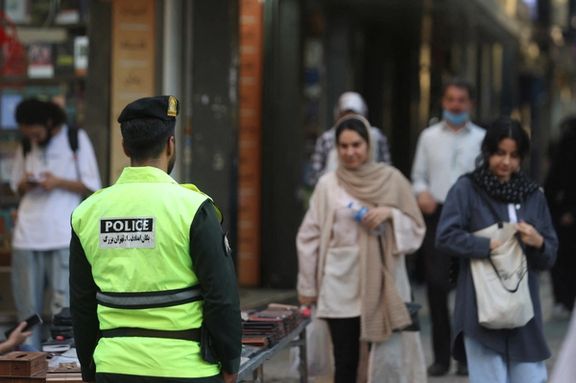
The Human Rights Office said the aim of Al-Nashif’s visit was “to discuss critical human rights issues, including the death penalty and rights of women, as well as Iran’s obligations under international human rights law as a state party to a number of treaties” and added that the visit would entail meeting with relevant state interlocutors, including judicial officials, and UN partners.
“Our mandate requires us to seek all avenues to promote States’ compliance with their international human rights obligations,” the Human Rights Office said.
The timing of Al-Nashif's visit, following Iran's recent executions and a surge in human rights abuses, raised concerns that the Islamic Republic might exploit it for propaganda purposes. Rights activists, including a coalition of 25 human rights organizations, called on Al-Nashif to postpone or cancel her visit in protest against the executions.
Iran executed four Kurdish prisoners on Monday, accusing them of collaborating with Israel. Rights organizations claim these executions were based on coerced confessions and lacked fair trials.
Another young man, a protester, was hanged on January 23 although his death sentence had been overturned by the Supreme Court and a retrial had been ordered, due to gross violations in his first trial. Recent weeks have seen an average of three executions per day in Iran.
The coalition of 25 human rights organizations expressed suspicions that Iranian authorities might exploit the visit to undermine international mechanisms critical to human rights promotion and protection in Iran.
“The visit will not undermine our approach in terms of reporting and advocacy. We hope that our combined advocacy and engagement contribute to progress towards strengthened alignment with international human rights standards,” the Human Rights Office responded about such concerns while stressing that its dialogue with the authorities allows them to follow up on all recommendations emanating from human rights mechanisms, including special procedures and fact-finding missions.
The United Nations’ Human Rights Council appointed an independent fact-finding mission in November 2022 to review Iran's human rights violations during the Woman, Life, Freedom movement that began in mid-September and spread throughout the country but was brutally crushed by killing around 500 civilians and arresting tens of thousands of protesters.
The Islamic Republic said it would not allow an independent investigation into the protests and has refused to cooperate with UN human rights rapporteurs since 1992.
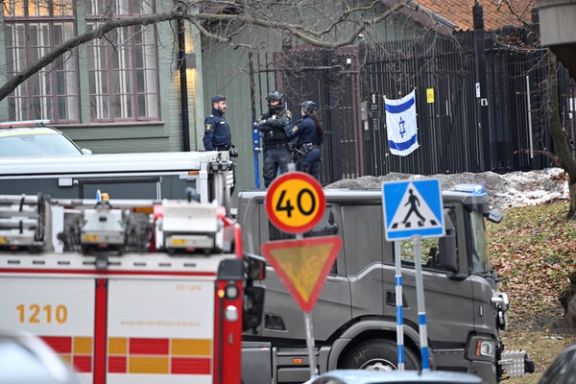
A Swedish Radio investigation has revealed that two Iranians were deported following a murder plot to kill Swedish Jews.
A Swedish Radio investigation has revealed that two Iranians were deported following a murder plot to kill Swedish Jews.
The couple, Mahdi Ramezani and Fereshteh Sanaeifarid, who had entered Sweden in 2015 on forged Afghan passports seeking asylum, were deported in 2022 after their arrest in 2021.
They had targeted three Swedish Jews including Aron Verständig, Chair of the Official Council of Swedish Jewish communities, who was informed of the plot in 2021. One of the other potential targets was a dual US citizen, according to the Swedish Radio report.
The suspects, believed to have been part of an IRGC plot, lived under fake identities in the country.
“I think that what Iran wants to do is to harm Israel and I think it’s very difficult for them to do these kinds of things in Israel. So instead they are randomly choosing people who have some kind of official position in the Jewish diaspora and trying to create fear," Verständig told the radio station, though it is unclear why the case has only gone public now.
Deputy chief prosecutor Hans Ihrman said the FBI in the US was also investigating the couple. While there was not enough evidence to prosecute in Sweden, Ihrman said: “We have strong belief that they were here on a mission on behalf of Iran. They were seen here in Sweden as a very severe security threat. And that's the reason why they were expelled, even if we couldn't prosecute them."
Jews and Israelis abroad have increasingly been targets of the regime in recent years, plots foiled in countries including Greece, Cyprus, Azerbaijan and Argentina.
Last year, Sweden's parliament voted to designate the IRGC and relations between the two countries are ever more strained since 2019 and the arrest of a former Iranian jailor, Hamid Nouri. Sweden sentenced him to life imprisonment last year over executions of political prisoners in 1988.
A series of high profile arrests of Swedish citizens has followed as Iran's hostage-diplomacy continues.
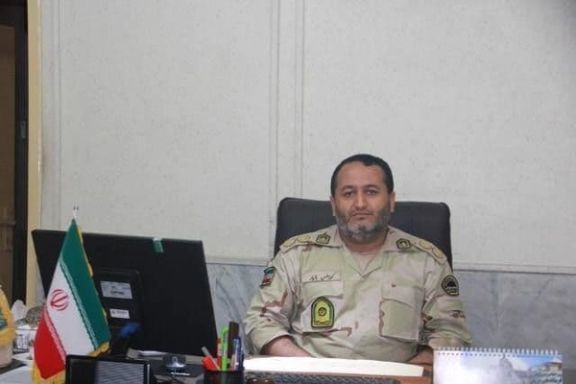
The commander of the Shiraz Police Rescue Unit, Colonel Kourosh Bazyar, was killed in a hit-and-run incident in the early hours of Tuesday.
According to a statement released by the Fars Province Police Information Center, “Bazyar was on patrol when he encountered a pickup truck suspected of carrying suspicious cargo. He ordered the driver to halt, but the driver, disregarding the command, attempted to flee the scene.”
After a pursuit, law enforcement officers managed to disable the pickup truck by firing shots at its tires. However, during the subsequent inspection of the vehicle, a sedan Peugeot, which was accompanying the cargo, “deliberately collided with Colonel Bazyar at high speed, inflicting severe injuries.”
Despite immediate medical attention and being rushed to the hospital, Bazyar succumbed to his injuries.
While further details regarding the incident are yet to be disclosed, social media users have already begun circulating videos identifying the dead police commander as one of the key figures involved in suppressing the 2022 protests in Fars Province.
Rahambakhsh Habibi, the commander of law enforcement in Fars Province, announced the arrest of a suspect. Additionally, two accomplices aiding the suspect's escape were also apprehended, he claimed.
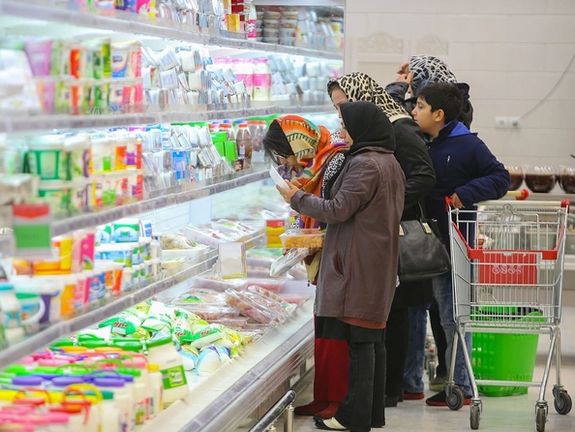
The rise in food prices in Iran have been accelerating in recent weeks with two big factors driving food price inflation higher, Ramadan and Nowruz, set to begin in March.
This year Ramadan starts on March 10 and the two-week holidays of Nowruz, which is the start of the Iranian New Year on March 20, lead to a significant increase in food prices, where most people celebrate both with numerous parties and religious events with food as the main glue of the gatherings. Studies have proven that the Muslim fasting month has a significant effect on the inflation of food prices in other countries where the Ramadan is observed, such as Turkey.
The anticipated increase in prices prompts the Islamic Republic to increase its hackneyed measures aimed at price control, including threats to shut down businesses or punitive measures for wholesale middlemen or retailers who do not comply with state-regulated rates. Other measures include supplying subsidized food items, distributing basic goods through state-owned chain stores, and banning exports.
However, these measures have minimal impact as mandated prices often do not correspond to the realities of the market and only lead to confusion and corruption by state companies who control the distribution networks of basic food items such as meat, edible oil, rice, flour, and sugar. Moreover, goods introduced by the government to stabilize the market are typically of low quality and quantity.
According to Iran’s statistics center, which releases a monthly price list of 53 food items among other indices, the general inflation rate in the last Iranian month, which ended December 20, was about 40 percent, in comparison with the same period last year. The prices of about 20 items on the list have increased more than the average inflation, with meat prices hitting over 130 percent.
The price of different kinds of meat or boneless mutton, as announced by official sources, is on average over 5,000,000 rials or about $10 per kilogram. Consumer prices at grocery shops are significantly higher, reaching as much as $20 per kilogram for high-quality products. Compared with an average monthly salary of about $150 to $200 in today’s exchange rates, wage earners cannot afford much meat.
Iran has been experiencing 40-percent inflation for at least three years, as its currency sinks and prices for imported essentials such as animal feed soar.
Last month, the governor-general of Kohgiluyeh and Boyer-Ahmad Province, where meat and chicken prices are higher than those in many other provinces, called for stricter enforcement of government-sanctioned rates. Ali Ahmadzadeh also urged regulatory bodies to prevent price hikes through constructive interaction with retailers and producers.
According to a report by Iran’s state news agency IRNA in November 2023, owners of butcher shops say prices are not reasonable, arguing for example that one kilogram of lamb meat imported from the neighboring Fars province costs about 4,500,000 rials (about $9) net and the government expects them to sell it at a lower price. If butcher shops fail to adhere to the government-approved rates, they not only risk closure but also incur fines.
In April 2018, as the United States was preparing to impose ‘maximum pressure’ sanctions, the rial fell to a then-record market low of around 60,000 against the dollar, the government of President Hassan Rouhani introduced a rate of 42,000 rials to the dollar to facilitate imports of essential goods. The government’s fixed-rate 42,000 rials for one dollar soon became a source of abuse by people who claimed to be importing essential goods, like food or raw materials, and instead imported luxury cars or simply turned around and sold the cheap dollars on the free market making huge profits.
The government began restricting the availability of dollars at 42,000 rials and President Ebrahim Raisi completely ceased the practice in 2022, saving around $15 billion annually, but accelerating food price inflation. The move immediately triggered a massive rise in prices for basic food staples, such as bread, dairy products, cooking oil and meat. In effect an important subsidy was removed, raising food, animal feed and medicine prices.
To compensate, President Raisi pledged to provide meat and chicken to the people at an "approved price" and even distributed special Ramadan handouts of 1.5 million rials (about $5) to 30 million citizens in 2022. The government has made numerous similar promises and announced numerous similar initiatives in the past.
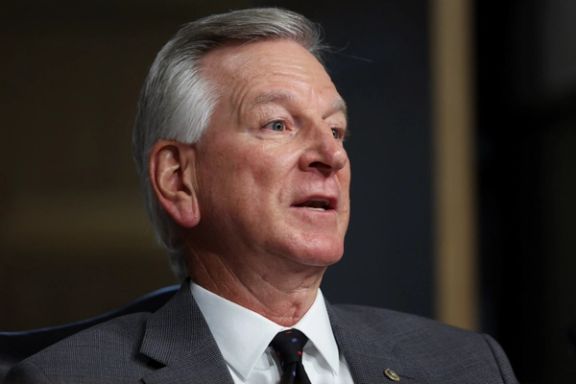
The US Senate Armed Services Committee has received no information from the Biden Administration regarding the impact of air strikes on Iran-linked targets, Sen. Tommy Tuberville told Iran International.
“I am on the Armed Services Committee, and we don’t know what we hit. We got no return summary of the bombing, and if anyone was hurt, anyone was killed, or anything was destroyed, and we spent a lot of money,” the Senator told our reporter Arash Alaei on Tuesday.
After a drone attack on January 28 on a US base in Jordan where three soldiers were killed, President Joe Biden pledged to retaliate, declaring that the attack was linked to Iran. However, the administration waited more than five full days before responding by air strikes on bases in Iraq and Syria, giving ample warning to Iranian IRGC and its proxies.
Critics have insisted that relentless attacks by Iran-backed forces against US targets in the region since mid-October warrants a more direct response against Iranian targets to re-establish deterrence. Reportedly, more ammunition was dropped than the number of armed individuals killed at the bombed locations.
Sen. Tuberville (R-AL) also expressed concern that the conflict in the Middle East is spreading because “others are getting involved” and not allowing the United States to calm the situation. He also expressed doubt that US retaliation against Iran-backed Houthi group, who attack vessels in the Red Sea, will have much of an impact